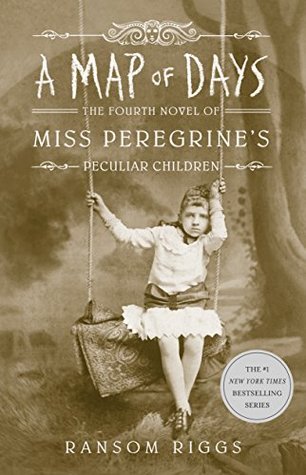More on this book
Community
Kindle Notes & Highlights
by
Ransom Riggs
Read between
January 28 - February 8, 2021
“Travel is crucial to one’s development,” said Miss Peregrine, her tone strangely defensive. “Until they have traveled, even the most educated person is ignorant. It’s important the children learn that our society is not the center of the peculiar universe.”
But the heart of it was this: My parents weren’t bad people. I hadn’t been abused or neglected. They just didn’t understand me, and I thought they deserved a chance to.
“I never claimed being peculiar was easy,” she said after a moment. “There are many unpleasant and difficult things about being one of us. Learning how to negotiate a world of people who can’t understand you and don’t want to—that’s probably the hardest bit.
All my life, normal people had mostly baffled me—the ridiculous ways they strove to impress one another, the mediocre goals that seemed to drive them, the banality of their dreams. The way people rejected anything that didn’t fit their narrow paradigm of acceptability, as if those who thought or acted or dressed or dreamed differently from them were a threat to their very existence. That, more than anything, was why I had felt so alone growing up. Things that normal people thought were important, I thought were dumb. And there was never anyone I could talk to about it, so I kept my thoughts to
...more
In her loop, Miss Peregrine had worked miracles protecting her wards from physical harm, but in her zeal to keep them safe, she had banned anyone who visited from talking to them about the modern world, and that had put them at a disadvantage. They had been too sheltered, and now they were like little Rip van Winkles, waking after a long sleep to a world they didn’t understand.
“The past is so much less terrifying than the future,” he explained after some coaxing. “Even the most terrible era of the past is at least knowable. It can be studied. The world survived it. But in the present, one never knows when the whole world could come to a terrible, crashing end.”
“Normals have been trying to erase us for centuries. I think photography is a way to fix ourselves in place. To prove we were here, and we weren’t the monsters they made us out to be.”
My peculiar friends had changed, I realized, but Miss Peregrine’s way of parenting them had not.
“The gang in charge made a law that nobody can use peculiarities but them. They even hire snitches to make sure nobody does.” “My God,” said Millard. “What kind of country is this?” “A cruel one,” said Emma. Paul sighed. “Is there another kind?”
these towns seemed more populated and prosperous here in 1965. They all had a bank, a hardware store, a doctor’s office, a couple of restaurants, a movie theater, and a lot more, too; not just some shuttered stores and a big-box shopping center on the outskirts. It didn’t take a genius to see the connection.
I wasn’t tired anymore, just pissed off and deeply unsettled. I had grown up in the American South—a weird, tropical version of it, filled with transplants from other parts of the country; but still, the South. But I’d never really confronted its ugly past. I’d never been forced to; I was a wealthy white kid in a mostly white town. I felt ashamed that I had never really reckoned with it, never imagined what a simple road trip through my own state might’ve been like for anyone who didn’t look like me. And not just in the past. Just because Jim Crow was dead didn’t mean racism was. Hell, in some
...more
The seeds of their downfall were planted a long time back. Back when the British and French and Spanish and native peoples were still fighting over who owned this country. Before it had occurred to anybody to fight over whether or not people should own one another.”
“Some of you aren’t from here”—Miss Annie was looking at my friends—“so maybe you don’t know. But this nation was built with the stolen labor of black people and on the stolen land of native people. A century and a half ago, the southern part of this country was, by itself, one of the richest places in the whole world, and the vast bulk of that wealth was held not in cotton nor gold nor oil, but in the form of enslaved human beings.”
“Just because folks were peculiar didn’t mean they weren’t racist.
The problem, really, was that I had been trying to navigate a world for which I had not been prepared.
But when Miss Peregrine’s loop collapsed, I was thrown into it with no choice but to swim for my life. Miraculously, through some combination of dumb luck, peculiar talent, and the bravery of my friends, I had survived—emerged victorious, even. But luck isn’t something you can depend upon, and my mistake was thinking I could dive in again and everything would work out somehow.
I was underprepared and overconfident.


